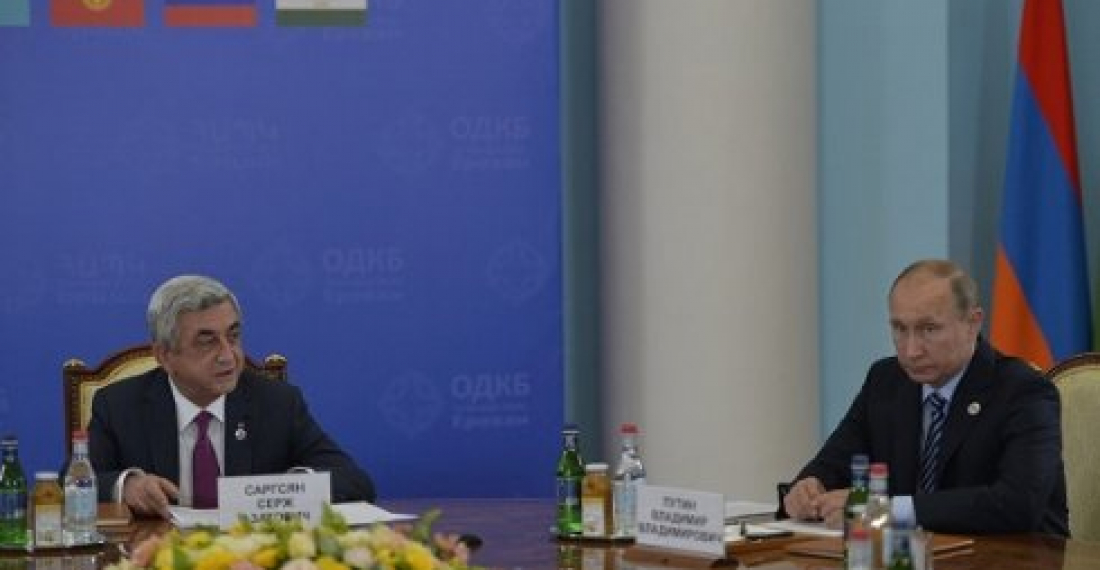Armenia remains dissatisfied with the support of its CSTO allies in its conflict with Azerbaijan over Nagorno-Karabakh
Leaders of Russia, Armenia, Belarus, Kazakhstan, Kyrgyzstan and Tadjikistan, meeting in the Armenian capital Yerevan on Friday, adopted a Collective Security Strategy outlining the priorities of their military alliance, the Collective Security Treaty Organization (CSTO), until 2025, and determining all main directions of cooperation.
“The CSTO member states reiterated their willingness to build relations with the international community on the basis of inseparability of trust and security, to avoid the use of force or the threat of force and give preference to diplomatic methods, when solving emerging problems,” Armenian President Serzh Sargsyan told reporters, as he summed up the results of the Yerevan summit.
In Armenia there were expectations that the CSTO will take a position supporting Armenia in its conflict with Azerbaijan over Nagorno-Karabakh. The organisation however adopted a non commital position.
“Within the framework of the CSTO the partners expressed support to the agreements on Nagorno Karabakh reached at the Vienna and St. Petersburg summits, which aim to prevent the rise of tension, stabilizing the situation and promoting the peace process,” President Sargsyan said.
“During the meeting participants stressed the need to solve the Karabakh conflict exclusively through peaceful means and expressed support to the efforts of the OSCE Minsk Group Co-Chairs based on the norms and principles of international law, the UN Charter and the Helsinki Final Act, namely the non-use of force or the threat of force, the territorial integrity of states and the right of peoples to self-determination,” President Sargsyan said.
On the margins of the summit there was also a rare public disagreement between Armenian and Russian diplomats. Russian Foreign Minister Sergei Lavrov spoke to journalists about a possible role for Turkey in the resolution of the Karabakh conflict, saying that Turkey could play a positive role. Armenian diplomats a day earlier had stated that Turkey should stay away from the Karabakh conflict settlement process as much as possible.
The meeting in Yerevan also decided to postpone discussion on the selection of a new Secretary-General for the organisation. There were rumours that several Armenian candidates were being considered, but the meeting decided that a decision on this will be taken in St Petersburg before the end of the year.
source: commonspace.eu with Armenian Public radio and agencies
photo: President Sargsyan of Armenia and President Putin of Russia at the CSTO summit in Yerevan on 14 October 2016 (picture courtesy of Armenian Public Radio)







